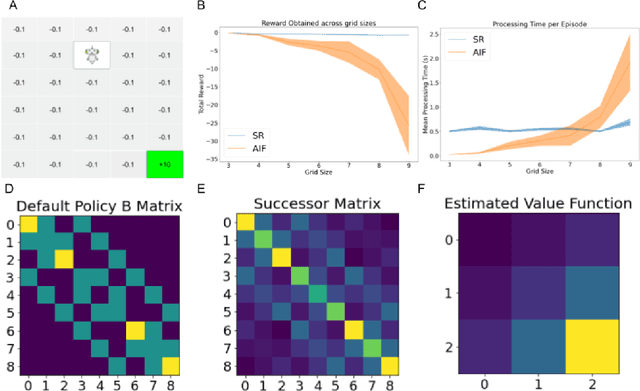Successor Representation Active Inference
Paper and Code
Jul 20, 2022

Recent work has uncovered close links between between classical reinforcement learning algorithms, Bayesian filtering, and Active Inference which lets us understand value functions in terms of Bayesian posteriors. An alternative, but less explored, model-free RL algorithm is the successor representation, which expresses the value function in terms of a successor matrix of expected future state occupancies. In this paper, we derive the probabilistic interpretation of the successor representation in terms of Bayesian filtering and thus design a novel active inference agent architecture utilizing successor representations instead of model-based planning. We demonstrate that active inference successor representations have significant advantages over current active inference agents in terms of planning horizon and computational cost. Moreover, we demonstrate how the successor representation agent can generalize to changing reward functions such as variants of the expected free energy.
 Add to Chrome
Add to Chrome Add to Firefox
Add to Firefox Add to Edge
Add to Edge